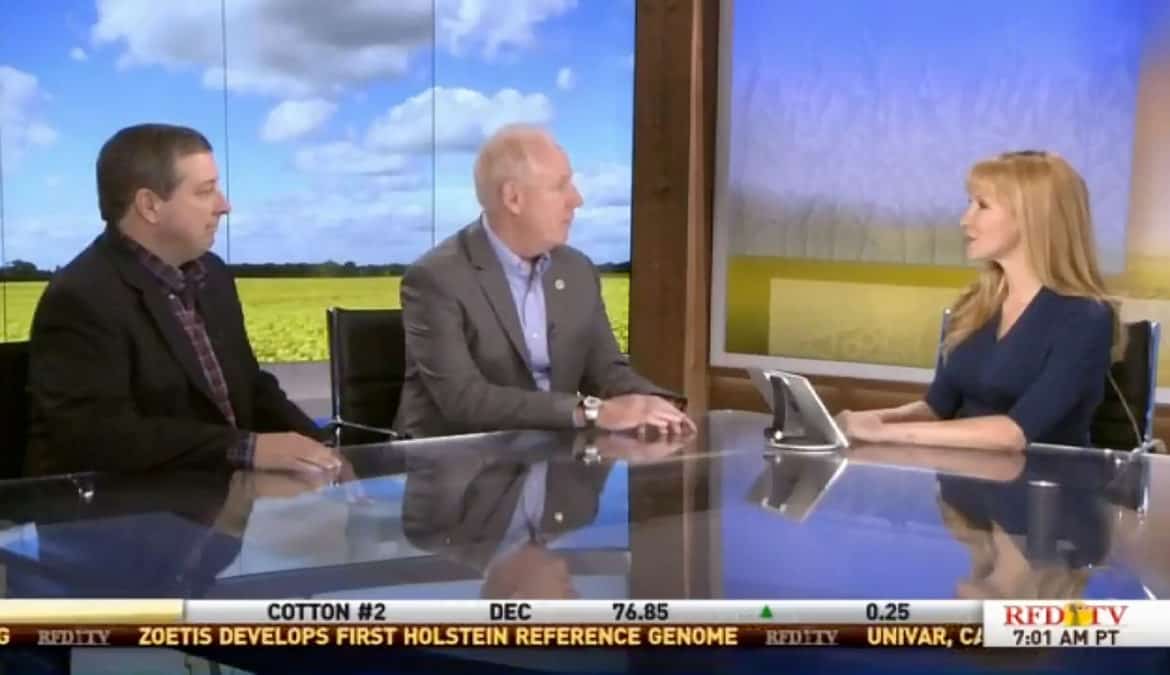In a series of interviews aired live on RFD-TV’s Market Day Report, KAEC President and CEO Chris Perry and co-op leaders from several other states explained the significance of electric cooperatives and major issues facing co-ops and rural America.
Perry, who has led both KAEC and United Utility Supply since 2014, touched on a number of important issues, including economic development, the ever-evolving energy mix, and KAEC’s mission to improve the quality of life in rural Kentucky.
“It traces back nearly 80 years ago to the New Deal,” Perry explained. “That’s when nobody wanted to go to these rural areas to serve energy. So, farmers and business people got together and said, ‘We need that out in our areas as well.’ So, that’s what we did. We came together and started building lines.”
“It’s very interesting,” Perry continued. “For cooperatives, we’re about six to eight customers per mile out in rural areas. In big cities such as Nashville, it’s upwards of 30 to 40 customers per mile. So, we’re doing a lot with a lot less customers.”
Perry was interviewed by RFD-TV anchors Christina Loren and Janet Adkison, who both expressed appreciation for the commitment of rural electric cooperatives.
“Thanks for doing what you do for our rural residents out there,” Loren said.
Based in Nashville, RFD-TV is the nation’s first 24-hour television network featuring programming focused on the agribusiness, equine and the rural lifestyles, along with traditional country music and entertainment. RFD-TV supports rural America and is available in more than 50 million homes.
The co-op leaders visited the RFD-TV’s studios while in Nashville for the NRECA Annual Meeting.
During the interviews, Perry highlighted the innovation of Kentucky’s electric cooperatives, including renewable energy projects such as Cooperative Solar from Kentucky’s Touchstone Energy Cooperatives. He also explained how Kentucky co-ops have dramatically reduced emissions from power plants, and addressed how co-ops play a role in encouraging young, talented Kentuckians to continue to live in rural areas.
“That’s a real challenge we have,” Perry said. “Think of bringing engineers and financial people back when they graduate from the University of Kentucky. Many of them don’t go back to these rural areas, so that’s something we’re really working on as rural electric cooperatives. Technology is driving us and we’re not in the past but we need those talented students to come back home.”
Perry noted the investment in youth by Kentucky’s electric cooperatives who sponsor the civic engagement and leadership training of more than 100 high school students on both the Frankfort Youth Tour and Washington Youth Tour. Both programs are administered by the Kentucky Association of Electric Cooperatives.
Perry previously served as CEO of Fleming-Mason Energy Co-op, and in several management and engineering positions in Kentucky and Florida. As a co-op leader, Perry is noted for his expertise in advanced metering and control systems and advanced modeling in load forecasting.
A graduate of Leadership Kentucky, Perry is former president of the Fleming County Chamber of Commerce. He is certified as a professional engineer in the commonwealth of Kentucky and is a member of the Institute of Electrical and Electronic Engineers and the Rural Electric Statewide Managers Association. He serves on the boards of both the Kentucky Chamber and the Kentucky Association of Manufacturers.



